Scaling for Impact
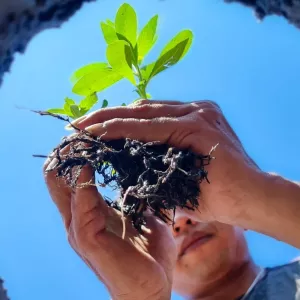
Overview
We will tackle global poverty, food insecurity, and climate risks by applying transdisciplinary science, fostering partnerships, generating evidence, and delivering integrated solutions to maximize impact and minimize duplication.
As the pioneering program fully dedicated to scaling land, food, and water systems innovations, we will ambitiously address critical challenges to meet pressing global needs. We will further establish CGIAR as a leader in agrifood systems innovation scaling – effectively fostering partnership synergies to deliver scalable, inclusive, and responsible innovation benefits.
Our goal
Our work contributes through
Where we work
Bangladesh, Benin, Cambodia, Colombia, Côte d’Ivoire, Democratic Republic of the Congo, Egypt, Ethiopia, Guatemala, Honduras, India, Indonesia, Kenya, Malawi, Mexico, Morocco, Myanmar, Nepal, Nigeria, Pakistan, Peru, Philippines, Senegal, Sri Lanka, Sudan, Tanzania, Tunisia, Uganda, Uzbekistan, Vietnam, Zambia, Zimbabwe
Challenges
Challenges we’ll address
- Difficulty in achieving widespread, inclusive, and lasting change in farming practices, policies, and technologies
- Climate change, environmental degradation, geopolitical instability, population growth, rising inequality, and unsustainable diets create barriers to sustainable scaling
- A need for science to rapidly evolve to generate scalable innovations resilient to today’s challenges and tomorrow’s climate, ensuring transformative impact
Areas of work
Engage and Empower
We will embed research and scaling activities within regional, national, and local innovation systems that foster transformative collaborations. We aim to close gaps between research, successful adaptation and adoption, and sustained use of innovations by aligning with stakeholder needs and priorities.
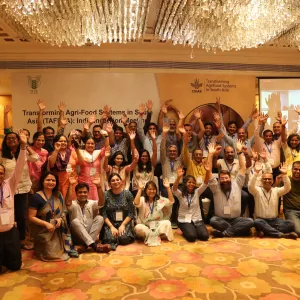
Pathways to Scale in Agrifood Systems
We will support CGIAR and our partners by diagnosing and identifying key levers for scaling within complex innovation systems and bundling and packaging innovations to position them along scaling pathways that address agrifood system challenges from production to consumption while mitigating environmental and climate risks.

Enabling Environment Lab
We will address barriers to scaling innovations by tackling policy, market, and societal constraints at different levels in agrifood systems. We will enhance the productivity, sustainability, inclusivity, and cost-effectiveness of scaling processes, equipping stakeholders in the regional innovation and scaling hubs with essential tools and insights to implement more effective scaling.
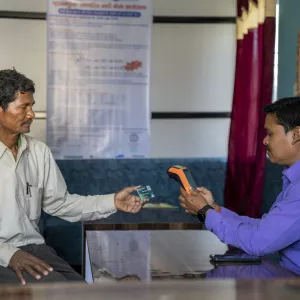
Achieving Impact by Unlocking Finance and Partnerships
We will strengthen and create collaborations with governments, international financial institutions, and value chain actors across agrifood systems to better support development programming. We will also leverage finance and scaling opportunities through private-sector investors and partnerships with large international NGOs and humanitarian organizations to channel scaling opportunities into impact.
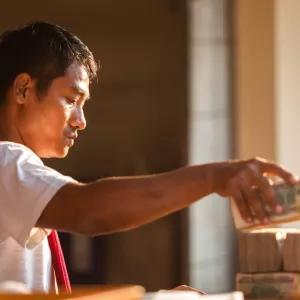
Learning for Impact
We will foster systems-thinking and a culture of diverse and continuous learning on scaling agrifood innovations by advancing scaling science, conducting holistic impact assessments, enhancing innovation portfolio coordination, and institutionalizing experiential learning through capacity building, South-South exchanges, and documenting lessons to refine practices and inform agricultural training across regions.
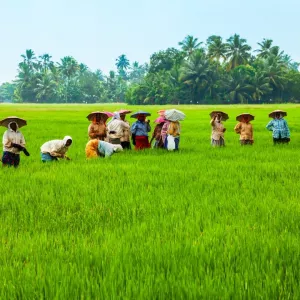
Gender Equality & Social Inclusion
We will prioritize gender equality and social inclusion through a transformative agenda and targeted interventions,integrating these priorities into its research and co-develop responsible scaling strategies with partners to ensure equitable access to resources and opportunities for marginalized groups.
Our approach
Interlinked support across CGIAR’s portfolio
We will work closely with the Better Diets and Nutrition, Breeding for Tomorrow, Climate Action, Food Frontiers and Security, Multifunctional Landscapes, Policy Innovations, Sustainable Animal and Aquatic Foods, and Sustainable Farming programs, and the Digital Transformation, Gender Equality and Social Inclusion, and Shared Capacity accelerators.
Working to share our capacity with
- governments and international financial institutions
- agribusinesses and agrifood system players
- scientists and students
Our expertise
- Robust relationships with regional and national stakeholders
- A mandate and experience in scaling science, combined with access to multistakeholder networks and scaling hubs
- Global and local transdisciplinary expertise with decades of in-country policy presence and a track record in enabling scaling research
- A mastery in mobilizing transformative finance and forming impactful collaborations with governments, private-sector actors, and international organizations
Events


